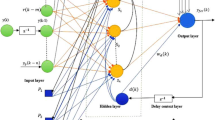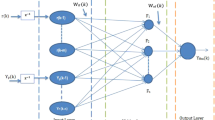Abstract
Recurrent Neural Networks (RNNs) are one in which self-loops and backward weight connections between neurons are allowed. As a result of these network characteristics, recurrent networks can address temporal behaviors which not possible in feedforward neural networks, such as their behavior in the limit reaches a steady state (fixed point), an oscillation (limit cycle), and an a periodic instability (choas). Since RNNs have been increasingly applied to many dynamic system applications, there have been extensive efforts to develop a variety of architectures and training algorithms concerning on the enhancement of dynamic system characteristics. This work focuses on comparison of the selected and proposed training algorithms for RNNs. To evaluate the performance of the algorithms in the daily stock price forecasting in terms of efficiency index and computational time. A simple analysis on the complexity of RNNs was also carried out. It is noted that when comparing the speed of the algorithm, two components to be taken into account : the computation complexity and the space complexity.
Access this chapter
Tax calculation will be finalised at checkout
Purchases are for personal use only
Preview
Unable to display preview. Download preview PDF.
Similar content being viewed by others
References
Koivo, H.N.: Neuro-Fuzzy Computing in Automation. Lecture Notes of Helsinki University of Technology, AZ-74.115 (2002)
Sutton, R.S.: Learning to Predict by the Methods of Temporal Differences. Machine Learning 3, 9–44 (1986)
William, R., Zipser, D.: A Learning Algorithm for Continualty Running Fully Recurrent Neural Networks. Neural Computation 1(2), 270–280 (1989)
Yamamoto, Y., Nikifuruk, P.N.: A Learning Algorithm for Recurrent Neural Networks and Its Application to Nonlinear Identification. In: IEEE International Symposium on Computer Aided Control System Design, Hawaii, pp. 551–556 (1999)
Atiya, A.F., Parlos, A.G.: New Result on Recurrent Network Training: Unifying the Algorithms and Accelerating Convergence. IEEE Transactions on Neural Networks 11(3), 697–709 (2000)
Williams, R.: Complexity of Exact Gradient Computation Algorithms for Recurrent Neural Networks. Northeastern Univ. College Comp.Sci., Tech.Rep. NU-CCS-89-27, Boston MA (1989)
William, R., Zipser, D.: Experimental Analysis of the Real – Time Recurrent Learning Algorithm. Connection Science 1(1) (1989)
Danh, N.T., Phien, H.N., Gupta, A.D.: Neural Network Models for River Flow Forecasting. Water SA 25(1), 33–39 (1999)
Nash, J.E., Sutcliffee, J.V.: River Flow Forecasting through Comceptual Models. J. Hydrology 10(3), 282–290 (1970)
Author information
Authors and Affiliations
Editor information
Editors and Affiliations
Rights and permissions
Copyright information
© 2006 Springer-Verlag Berlin Heidelberg
About this paper
Cite this paper
Pattamavorakun, S., Pattamavorakun, S. (2006). A Comparison of Selected Training Algorithms for Recurrent Neural Networks. In: Yang, Q., Webb, G. (eds) PRICAI 2006: Trends in Artificial Intelligence. PRICAI 2006. Lecture Notes in Computer Science(), vol 4099. Springer, Berlin, Heidelberg. https://doi.org/10.1007/978-3-540-36668-3_37
Download citation
DOI: https://doi.org/10.1007/978-3-540-36668-3_37
Publisher Name: Springer, Berlin, Heidelberg
Print ISBN: 978-3-540-36667-6
Online ISBN: 978-3-540-36668-3
eBook Packages: Computer ScienceComputer Science (R0)




